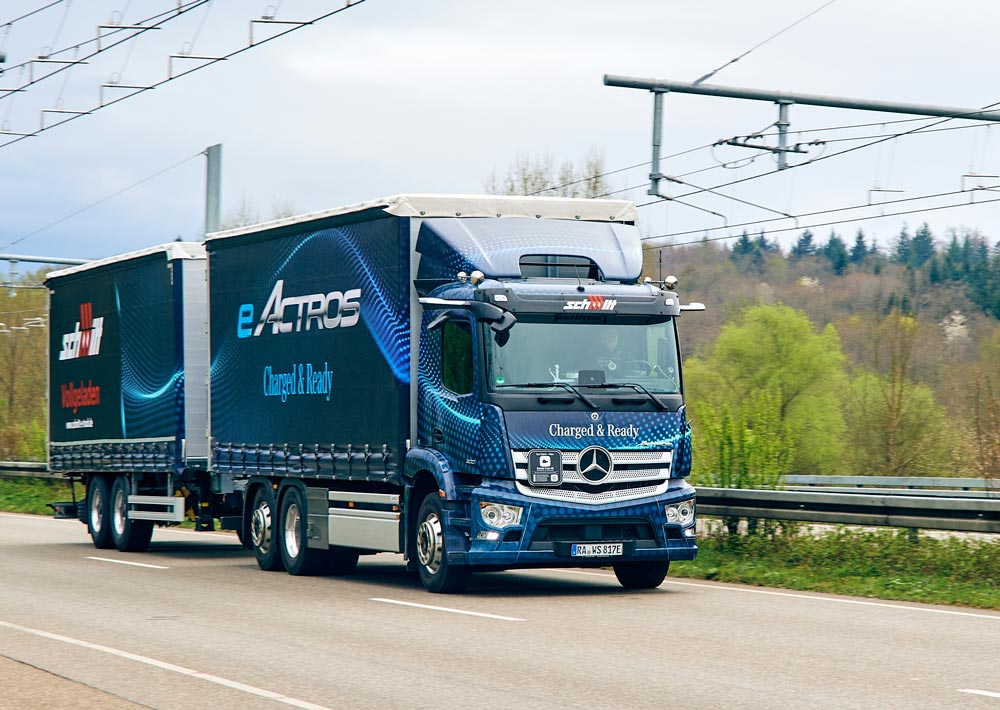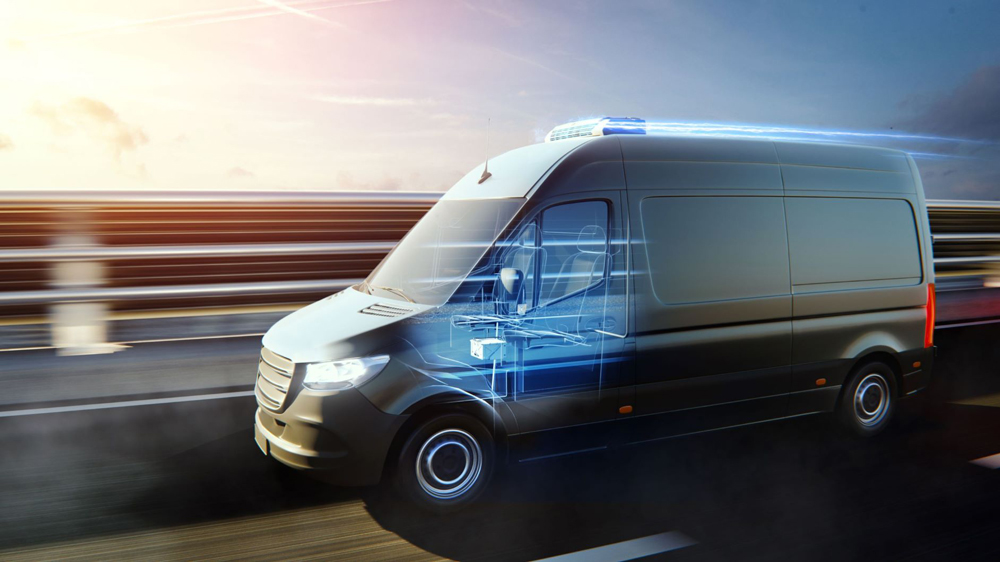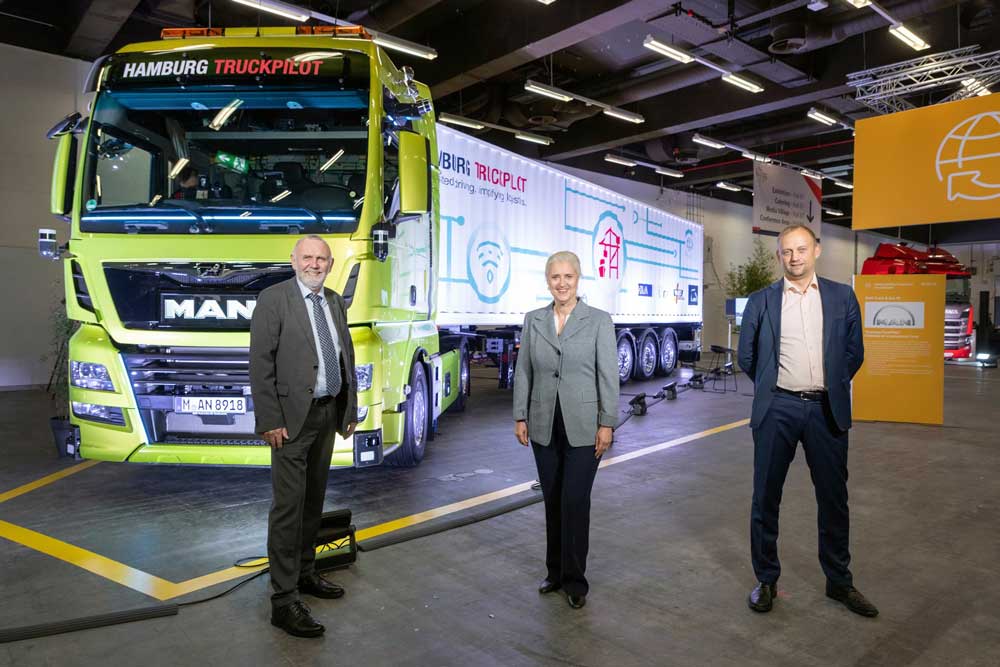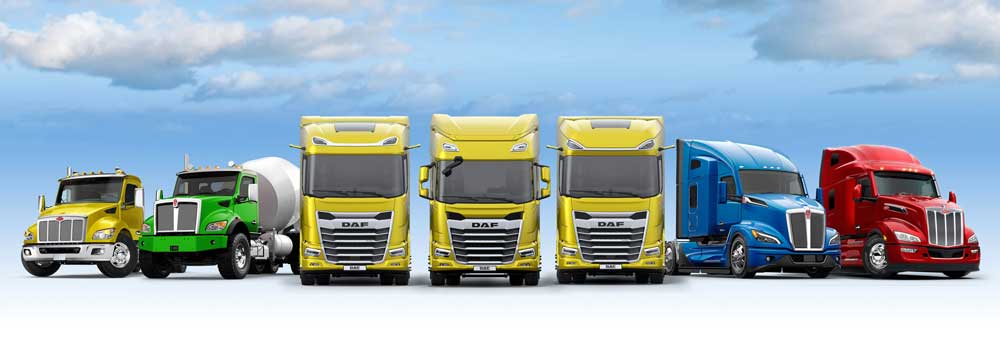In 2018 Daimler Buses enjoyed major sales growth, selling 30,900 buses and chassis worldwide (compared with 28,700 in the prior year). The sustained high demand for complete buses, the slowly recovering Brazilian economy and growth in India were major contributors to this great sales success. The Daimler Buses division was thus able to maintain its position as market leader in the most important core markets EU30 (EU, Switzerland and Norway), Brazil, Argentina and Mexico. Return on sales was 5.9 percent (compared with 6.2 percent in the prior year) and was therefore in line with targets.
Based on the continued favourable market conditions, Daimler Buses expects a major sales increase in 2019. In Europe and India in particular, the Buses division anticipates positive sales development. For the current business year the business unit is aiming for a Return on Sales between 5 and 7 percent.
Till Oberwörder, Head of Daimler Buses & Chairman of the Board of Management at EvoBus GmbH: “At Daimler Buses we’re very pleased with the 2018 business year. We’ve significantly increased our worldwide sales. With the market launch of our fully electric Mercedes-Benz eCitaro, new digital services and our new-generation minibus, we have also taken some important steps toward the future. It was an incredible performance by our international bus team! We have also set some ambitious targets for the coming year and intend to continue growing – not just in our established markets but especially in the world’s new growth regions.“

Clear orientation toward three strategic operating fields
In order to achieve its aims Daimler Buses is concentrating on three strategic operating fields: global market presence, technology leadership and business excellence. With the help of strategic partnerships the business unit aims to ensure the generation of additional expertise in new technologies and services.
Oberwörder continued: “It is our aim to be the world’s leading provider of buses and mobility services. To do so we are pursuing a strategy with three clear operating fields: our global market presence, our role as a technology leader and business excellence. In the future we will continue to offer the best comprehensive solutions to our customers as the leading provider around the globe – with the best vehicles and the best package of services, consulting and mobility solutions.“

Global market presence: development of the core business and growth strategy for conquering new markets
As a market leader in our major core markets, Daimler Buses continuously develops its classic product portfolio and thus strengthens what has traditionally been our core business. The new Mercedes-Benz Sprinter, for example, forms the basis for a completely new generation of our successful Mercedes-Benz minibuses.
With products perfectly adapted to meet local requirements, an efficient production network and customer-oriented sales and service offerings, Daimler Buses continues to tap into growth potential in promising markets like North Africa, the Near and Middle East, south-east Asia and India. The Buses division benefits from the Regional Centres it established in 2015 that are located in close proximity to customers in these regions: In 2018 Daimler Buses was able to increase sales in these emerging regions by around 37 percent to nearly 7,000 units. With the Chennai plant (India) as its base, the business unit intends to gain greater market share in India with its BharatBenz brand while, at the same time, strengthening the plant as an export hub. An efficient production network ensures the Bus division remains flexible in deciding whether new export markets should be served from India, Brazil or Europe

Technology leadership: successful market launch of the fully electric
Mercedes-Benz eCitaro and continued development of technology leadership
With the launch last year of the fully electric Mercedes-Benz eCitaro, Daimler Buses has been able to offer a locally emission-free urban bus for environmentally-friendly public transport in cities and urban areas. The battery-electric eCitaro is series-ready. As of a few weeks ago the first vehicles are already in service as part of the public transport systems in Hamburg and Heidelberg. The bus plant in Mannheim is ready to begin deliveries.
As the development of battery technology is progressing at a rapid pace, the eCitaro is already designed to be transitioned to the battery technology of the future. As of 2020 the future use of solid-state batteries will be an option. The next generation of our lithium-ion batteries will soon follow. Furthermore, as of 2022 the eCitaro’s range will be increased yet again by a range extender in the form of a fuel cell for generating electricity.
The fully electric eCitaro is also part of the complete eMobility system of Daimler Buses, which advises customers on the range of applications. A customised service concept is part of the portfolio. In the coming months Daimler Buses will be expanding this portfolio and has a five-percent share in IVU — one of the leading companies in the creation of business management software for public transport operations. As part of this strategic partnership, Daimler Buses and IVU are working together on the close integration of eCitaro into the operational management of businesses. Thanks to this cooperation with IVU, software solutions can be developed for transport companies that can be implemented in existing systems in a practical manner.
An important milestone on the road to connecting vehicles is the digital Portal Omniplus On. All of the existing and new digital services for buses are bundled here. One of the new services launched in 2018 included Omniplus Uptime, which optimizes bus workshop visits and helps avoid downtime. Additional digital services such as Omniplus On monitor (provides the fleet manager with real-time data on the vehicle and driver) and Omniplus On commerce (online shop for spare parts in Europe) are waiting in the starting blocks.

Business excellence for sustainable, profitable growth
In
order to create the basis for sustainable,
profitable growth,
Daimler Buses is continuously developing its worldwide production network. To
this end the Buses division bundles its competence in development and
production such as, for example, the safety technologies and assistance systems
at the Neu-Ulm location and the series production of electric buses in the
Mannheim plant. As announced in 2017, by 2020 about 140 million euros will
be invested in production locations and about 200 million euros in new
technologies.
Strategic cooperation with partners as a success factor
In addition to the systematic cooperation with other Daimler business units, in the future Daimler Buses will increasingly count on strategic collaboration with partners. This should generate new perspectives and additional expertise in technologies and services. Collaboration will allow the Buses division to tailor its products even more closely to the needs of new markets and customers and, in turn, launch innovation to the market more quickly.

Daimler Buses: 2018 business year at a glance
| 2018 | 2017 | |
| Sales | 4,529 | 4,524 ¹ |
| EBIT | 265 | 281 ¹ |
| Capital expenditure | 144 | 94 |
| Research and development | 199 | 194 |
| of which are active development costs | 41 | 30 |
in million euros
¹ The values were adjusted in line with the first use of IFRS 15 and IFRS 9.
| Employees (31.12.) | 2018 | 2017 |
| Total | 18,770 | 18,292 |
| Germany | 8,545 | 8,462 |
| Other countries | 10,225 | 9,830 |
| Sales (units) | 2018 | 2017 |
| Total | 30,888 | 28,676 |
| EU30 2 | 9,284 | 8,687 |
| of which are in Germany | 2,902 | 3,057 |
| Latin America (excl. Mexico) | 13,681 | 12,740 |
| off which are in Brazil | 8,778 | 7,201 |
| Mexico | 3,236 | 3,440 |
| Asia | 3,172 | 2,348 |
| Other markets | 1,515 | 1,461 |
2 EU, Switzerland and Norway










